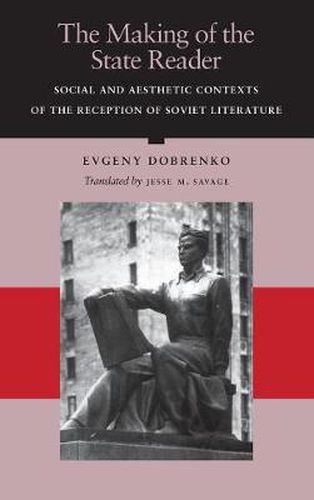Readings Newsletter
Become a Readings Member to make your shopping experience even easier.
Sign in or sign up for free!
You’re not far away from qualifying for FREE standard shipping within Australia
You’ve qualified for FREE standard shipping within Australia
The cart is loading…






In Soviet culture, the reader was never a consumer of books in the Western sense. According to the aesthetic doctrine at the heart of Socialist Realism, the reader was a subject of education, to be reforged and molded. Because of this, Soviet culture cannot be examined properly without taking into account the reading masses. This book is a history of the shaping of the reader of Soviet literature, a history of the State appropriation of the reader. The entire history of the formation and transformation of the institution of literature in the revolutionary and Soviet eras bears witness to the fact that literature was called upon to perform substantive political and ideological functions in the authorities overall system (which included the publishing business, the book trade, libraries, and schools) aimed at ultimately creating a new Soviet person. This book shows how people from various social classes, in a dynamic unknown in pre-Soviet history, not only consumed the products of a new culture but in fact created that culture.
$9.00 standard shipping within Australia
FREE standard shipping within Australia for orders over $100.00
Express & International shipping calculated at checkout
In Soviet culture, the reader was never a consumer of books in the Western sense. According to the aesthetic doctrine at the heart of Socialist Realism, the reader was a subject of education, to be reforged and molded. Because of this, Soviet culture cannot be examined properly without taking into account the reading masses. This book is a history of the shaping of the reader of Soviet literature, a history of the State appropriation of the reader. The entire history of the formation and transformation of the institution of literature in the revolutionary and Soviet eras bears witness to the fact that literature was called upon to perform substantive political and ideological functions in the authorities overall system (which included the publishing business, the book trade, libraries, and schools) aimed at ultimately creating a new Soviet person. This book shows how people from various social classes, in a dynamic unknown in pre-Soviet history, not only consumed the products of a new culture but in fact created that culture.